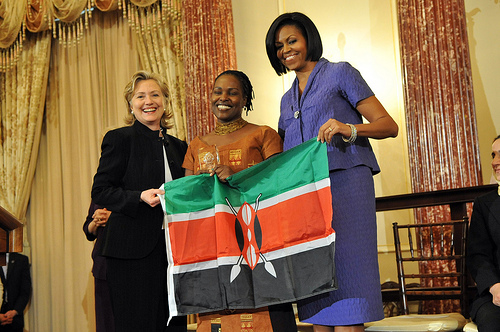Traveling or relocating to new regions of the world (the United States is no exception) increases chances of contacting diseases that were absent in one’s country of origin, making it necessary for everyone to get immunized.
Last month in this health section, Sara Chute introduced information about immunizations. The article focused on vaccinations given to infants and young. Many people may think that only infants and toddlers require immunization. However, people in their early teens and adults need immunizations too.
Immunizations given to pre-teens (around age 11-12 years) or to adults are given for a few reasons: to boost the protection from vaccines given earlier in life; to protect against diseases that are more common in adolescents and adults, and to satisfy the requirement for adjustment of status in order to receive a green card or school entry.
Teen Vaccinations
Vaccines that might be given to teens include the following:
Tetanus, diphtheria, and pertussis booster (Tdap): This is an old vaccine with a new twist. In the past there was no pertussis (whooping cough) protection in the vaccine, just the Td part. As a result, teens as well as adults would get whooping cough and pass it on to babies who hadn’t finished their vaccine series. While pertussis isn’t as dangerous to teens and adults, they can still get pretty sick and have terrible coughing spells. It spreads pretty easily in schools.
Meningococcal vaccine (MCV4): This vaccine protects against infection in the brain and spinal cord. The disease can cause life-long problems and can result in death. Older teens have a higher chance of getting this dangerous disease than at other ages. It is also recommended for people – young and old – who have certain medical conditions and person who travel to some parts of Africa. This vaccine is also required for people going to Saudi Arabia to perform the Hajj.
Human papillomavirus (HPV) vaccine: This virus infection is very common all over the world and some HPV infections can lead to cancer, especially cervical cancer in women. This virus also causes genital warts. The vaccine guards against 4 of the types of HPV that might cause cancer or genital warts. Because it protects against cancer in women, it was made for females and recommended for young females starting at about 6th Grade or right before junior high school. This vaccine and regular cervical cancer screening will protect women from cervical cancer.
Adult Vaccinations
Adults need vaccines less frequently. Here is a list of vaccines to talk to your healthcare provider about: Tetanus, diphtheria (Td) booster: All adults should get a booster every 10 years. For adults under 65 years of age, one booster dose should be the Tetanus, diphtheria, and pertussis (Tdap) instead of a Td, especially if you are a parent or are around infants under 12 months of age.
Influenza vaccine: Adults 50 years and older and persons of any age with chronic medical conditions including lung diseases, heart diseases, cancer, HIV infection, diabetes, or kidney diseases, need this vaccine each year in the fall. The type of influenza virus that circulates changes almost every year, which is why a person needs to get a dose every year.
Pneumococcal: Adults 65 and older and those younger with certain diseases including heart disease, lung disease, kidney disease, cancer, diabetes, HIV infection, loss of an organ called the spleen need to get one dose of this vaccine. Some may need two doses 5 years apart. Talk to your healthcare provider about this.
Zoster vaccine: This is a newer vaccine for persons 60 years of age and older. It protects against an illness called Shingles. Shingles causes a skin rash that is very, very painful and can last a long time. Sometimes it develops on the face and can affect the eye. The vaccine may only protect half the people against the disease. Why get it? People who get vaccinated may have a milder case of shingles and it won’t last as long.
Hepatitis B: Some adults might also get the hepatitis B vaccine which protects the liver, especially against liver cancer. It is important to get vaccinated if you live or have sex with a person who has a chronic, ongoing case of hepatitis B. This disease is very common in many developing countries and people coming from developing countries should be evaluated to see if they have chronic hepatitis B. If they do, they need to see a specialist for ongoing care and possible treatment
Other vaccines that adults might receive because they do not have proof that they got vaccinated or had the disease include the measles, mumps, rubella (MMR) vaccine and the varicella vaccine. It is not dangerous to get extra doses of these vaccines or to be vaccinated if you have already had the disease. The vaccine will just add more protection. Like children, some of the vaccine may cause a sore arm or tiredness the next day. Usually an anti-pain medicine like Tylenol will help these temporary symptoms. These reactions usually mean that the vaccine is doing its job – keeping you healthy and protecting you against some dangerous diseases.
Lynn Bahta is an immunization clinical consultant at Minnesota Department of Health. Sara Chute of the department’s Refugee Health Program contributed to this article.
About Lynn Bahta
- Web |
- More Posts(1)







